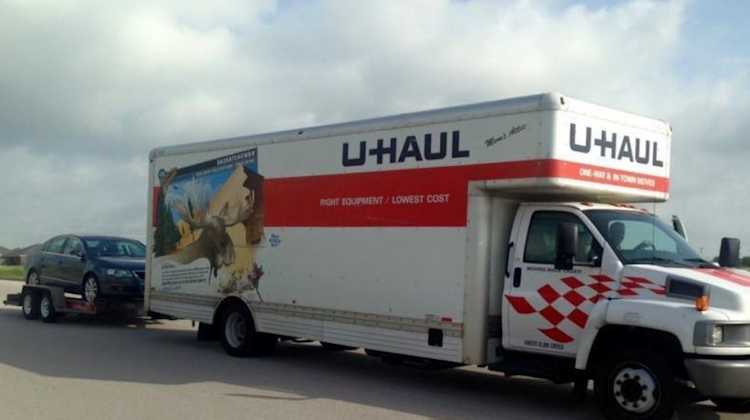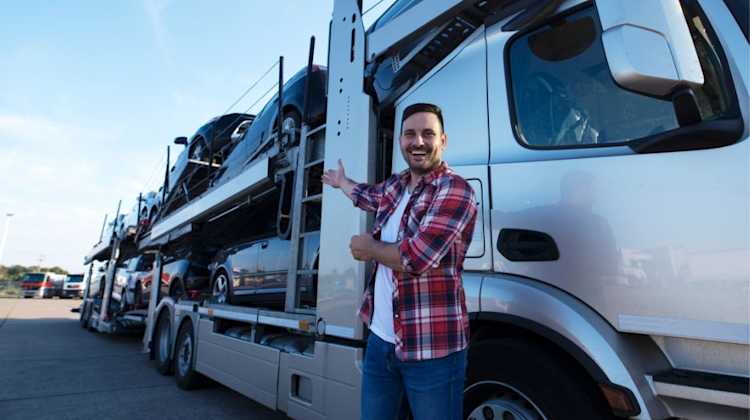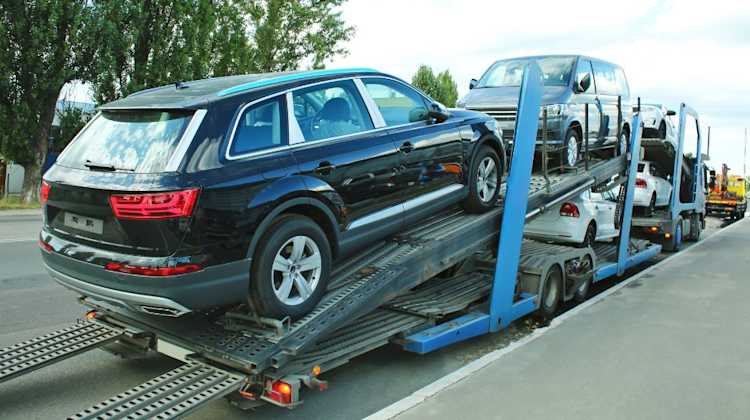TRANSCOM: Vehicle Shipping for Military Explained
by Lizann Lightfoot - March 30th, 2022
Our guest is Lt. Col. Lowery from TRANSCOM. She has been with TRANSCOM for 2 years, and working as a logistician and moving for my 20-year career.
DOD Updates: Exciting news, in 2021, the Army created an app called Digital Garrison to connect you to your new installation, what is happening at that post, and in the community. They also have an Army PCS Move app to find resources and information. The Navy has an app called My Navy Family with information about PCSing, Housing, etc. These apps are easy to use and good as a quick reference.
The Marine Corps has a new MARADMIN 289-14, which changes how alcohol shipments happen. Previously, alcohol couldn’t be moved with household goods. Now they can be included.
A great new tool is the Inconvenience Claim factsheet on Move.mil. This explains what is covered, how it works, and it is easy to read and understand.
What are the requirements for vehicle shipping for military members? Is it only for OCONUS?
Just like with household good shipments, it’s important to start with a current set of orders and look at the entitlements. Generally, vehicle shipping is for military PCSing to overseas duty stations. But there are times when service members can ship a vehicle within the lower 48 states. It can be for medical reasons, new trainees, or sometimes for DoD civilians. But usually we are referring to shipping vehicles overseas.
What is the process for shipping a POV (privately owned vehicle)?
The first step is having orders with the authorization of that entitlement. Then contact your Personal Property Office to get that counseling to find out all the details. They will need to see orders, proof of vehicle ownership, and the vehicle registration. Once that part is done, then you reach out to the Vehicle Processing Center (VPC) which is where you will drop off and pick up your vehicle. In some locations, VPC’s are appointment only because of the ongoing COVID regulations. Go to their website to schedule the drop off.
Next, documentation. Gather all documentation prior to dropping off the vehicle: copy of military ID front and back, copy of vehicle ownership in the service member’s name (or a Power of Attorney if you are not the service member), and possibly a lease or lien letter if you are in that situation.
Then look at your vehicle and its current condition. It needs to pass inspection and be in full operating condition– update any recall problems, make sure it is cleaned inside and out. The gas tank should only be ¼ full because that is all that’s authorized for shipping. You need a separate set of keys that will open the doors and trunk. This will go with the vehicle, so make a spare set if needed. Car alarms must be disabled, so read your maintenance manual or check with the dealership. Take photos of any scratches and bumps, because that will all be annotated at the VPC before it ships.
What if you are a spouse and the vehicle is not in the service member's name?
Talk to your move counselor about this situation, so you have time to handle it and file the correct paperwork before dropping off your vehicle. You may need a Power of Attorney.
If I am CONUS and my family is choosing to ship a car at our expense, can we still get the milage we were entitled to if we drove it?
In some cases, the answer is yes, because you were entitled to receive that mileage reimbursement. But if you choose to use a white-glove service, it won’t cover that expense. So it depends on the orders.
What is the process for storing a vehicle?
The entitlement usually covers only one vehicle per family, whether that is shipped or stored. If you have multiple vehicles, you will have to decide whose car goes, whether a family member helps move one, etc. There are more ideas on moving with multiple vehicles here.
If you have a boat or RV, can you substitute that for a POV?
Boats fall under household goods, but are not considered a POV because they are not wheeled vehicles. This includes canoes, kayaks, jet-skis, etc. Bring these up during your counseling session to get clarity.
RVs do count as POVs. Some are quite large, so there may be additional costs to move them. Motorcycles are also under the vehicle umbrella. Bring these up during counseling because it’s important to know what vehicles you will be responsible for and when you will have out-of-pocket expenses. There was a more in-depth discussion of these items in our previous webinar with TRANSCOM.
What items can you pack in your vehicle when it ships?
You are allowed to ship the vehicle with basic items like tire irons, vehicle safety kit, and spare tires. If you have young children, you can include a car seat, stroller, or a pack and play. Jackets can be included if it’s to a cold location. A car top carrier may be included if it fits inside the vehicle. They must be up to window level but not blocking windows. If you have electronic add-ons mounted in your vehicle that were not part of the stock model (like iPads velcroed to the back of a seat), then they will need to be removed before shipping. No flammables or extra vehicle liquids are permitted.
What should families know about shipping and storing their POV?
It’s like preparing for your household goods: you need to plan, do the documentation, and work the timeline backward so you can calculate when you need to ship to make things go smoothly. Our partner PCSmyPOV.com has added a lot of details about how to prepare, what to expect, etc. Their website is a good resource to use before dropping off or picking up.
Can families ever get authorized to ship two vehicles?
It’s rare to ship two vehicles authorized for one family, but could possibly be allowed for an EFMP family or a very particular situation. Some families in Alaska were authorized two vehicles during the pandemic because Canada was locked down and families could not drive through. The border has since re-opened, but there are strict rules and regulations to follow.
Normal peak season for PCS is mid-May through August.
Watch the entire interview here:






